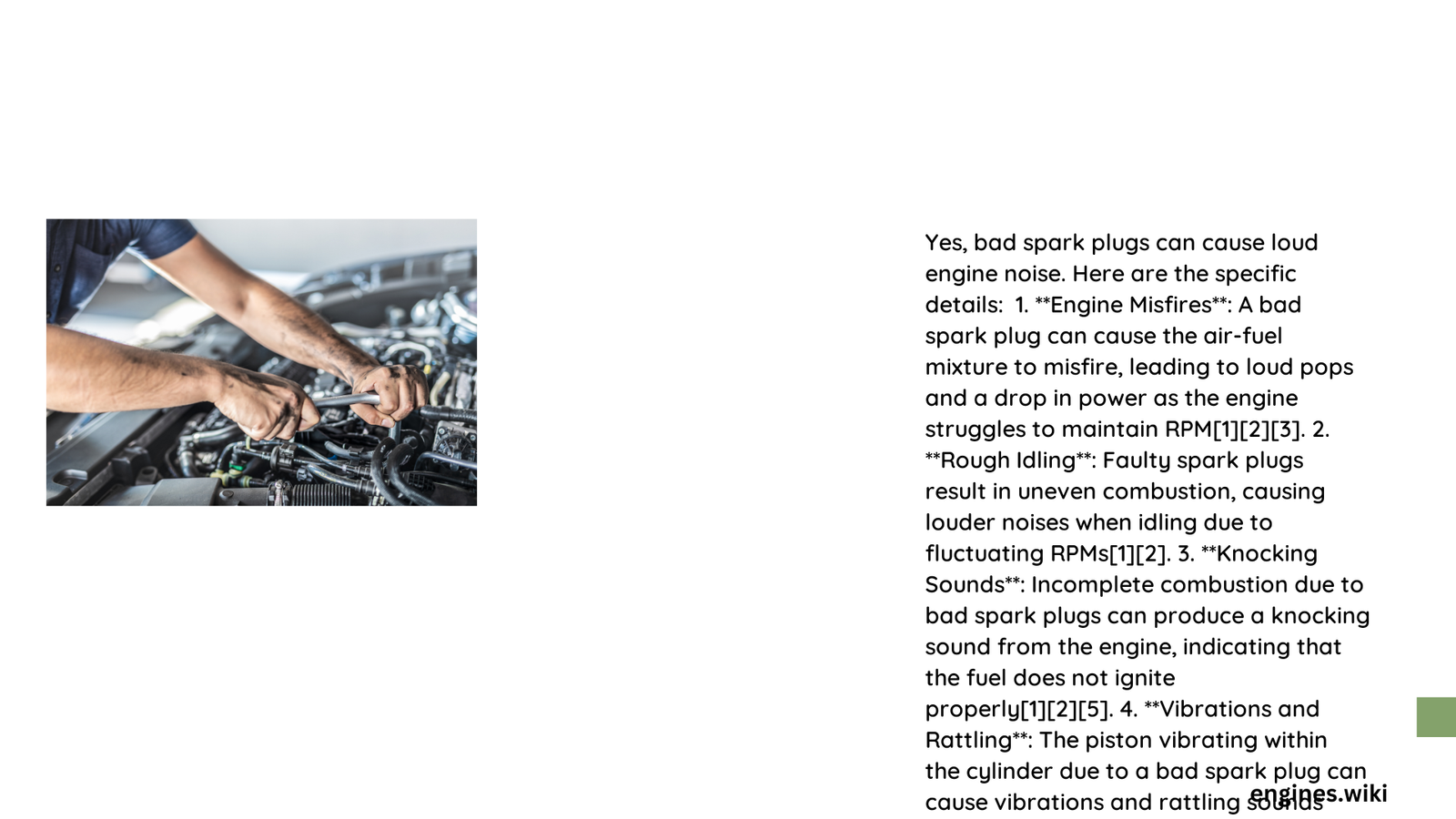Bad spark plugs can create significant engine noise through multiple mechanical disruptions. When spark plugs fail to ignite fuel correctly, they trigger a cascade of performance issues including engine knocking, rough idling, and unpredictable combustion patterns. These symptoms manifest as loud, irregular sounds that indicate potential underlying engine problems requiring immediate professional attention.
What Causes Loud Engine Noise with Bad Spark Plugs?
How Do Spark Plugs Generate Engine Noise?
Spark plugs play a critical role in the combustion process. When they malfunction, they disrupt the precise timing and efficiency of fuel ignition, leading to several noise-generating scenarios:
Primary Noise Generation Mechanisms
- Uneven Combustion: Irregular spark plug performance creates inconsistent fuel burning
- Cylinder Misfires: Incomplete fuel ignition produces knocking and popping sounds
- Delayed Spark Timing: Incorrect spark timing leads to unpredictable engine noise
What Are the Specific Sound Characteristics?
| Noise Type | Description | Potential Cause |
|---|---|---|
| Knocking | Metallic, repetitive sound | Delayed fuel ignition |
| Popping | Sharp, sudden bursts | Cylinder misfires |
| Pinging | High-pitched metallic sound | Pre-ignition issues |
How Do Bad Spark Plugs Impact Engine Performance?
Bad spark plugs create multiple performance degradation scenarios:
- Fuel Efficiency Reduction
- Up to 20% decrease in miles per gallon
- Increased fuel consumption
-
Higher operational costs
-
Power Output Limitations
- Potential 25-30% horsepower reduction
- Decreased acceleration responsiveness
- Uneven power distribution across cylinders
What Diagnostic Steps Reveal Spark Plug Problems?
Visual Inspection Techniques
- Check electrode wear and corrosion
- Measure spark plug gap
- Examine insulator condition
- Look for carbon deposits
Technical Diagnostic Methods
- Use OBD-II scanner for misfire codes
- Perform compression tests
- Check ignition system voltage
- Analyze exhaust emissions
When Should Spark Plugs Be Replaced?
Recommended replacement intervals depend on multiple factors:
- Standard Copper Plugs: Every 30,000 miles
- Platinum Plugs: Every 60,000 miles
- Iridium Plugs: Every 100,000 miles
What Are Recommended Replacement Strategies?
- Use manufacturer-recommended spark plug types
- Match exact specifications for your vehicle
- Replace entire set simultaneously
- Use high-quality brands like NGK, Bosch
- Ensure proper torque and gap settings
How Much Do Spark Plug Issues Cost?
| Repair Level | Estimated Cost Range |
|---|---|
| DIY Replacement | $50 – $150 |
| Professional Service | $150 – $400 |
| Potential Engine Damage | $1,000 – $5,000 |
Pro Tips for Prevention
- Perform regular maintenance
- Use high-quality fuel
- Address warning signs immediately
- Follow manufacturer’s maintenance schedule
Conclusion

Loud engine noise from bad spark plugs signals critical performance issues requiring prompt professional evaluation. Understanding these symptoms helps prevent extensive engine damage and maintains optimal vehicle performance.
